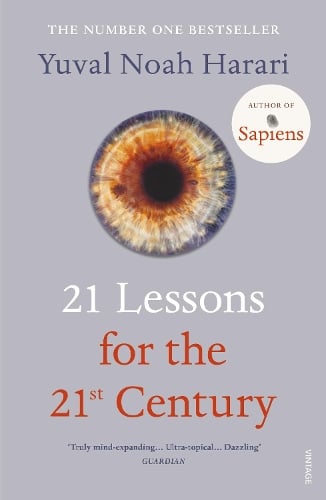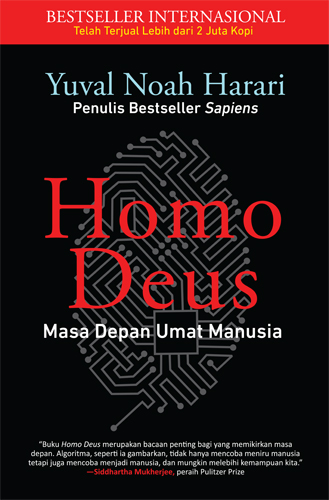
“ Sapiens takes readers on a sweeping tour of the history of our species…. “Harari is an exceptional writer, who seems to have been specially chosen by the muses as a conduit for the zeitgeist… Fascinating reading.” - Times Literary Supplement (London) “Thank God someone finally wrote exact book.” - Sebastian Junger, New York Times Book Review It is a highly seductive scenario planner for the numerous ways in which we might overreach ourselves.” - The Observer (London) Homo Deus, in which that likely apocalyptic future is imagined in spooling detail, is that book. “Like all great epics, Sapiens demanded a sequel. In Homo Deus, Yuval Noah Harari shows us where mankind is headed in an absolutely clear-sighted & accessible manner.” - Mail on Sunday “ great book…not only alters the way you see the world after you’ve read it, it also casts the past in a different light. “Provocative.the handiwork of a gifted thinker.” - Jennifer Senior, New York Times
#Yuval noah harari homo deus full#
“A remarkable book, full of insights and thoughtful reinterpretations of what we thought we knew about ourselves and our history.” - The Guardian “What elevates Harari above many chroniclers of our age is his exceptional clarity and focus.” - London Sunday Times “I enjoyed reading about these topics not from another futurist but from a historian, contextualizing our current ways of thinking amid humanity’s long march–especially…with Harari’s ability to capsulize big ideas memorably and mingle them with a light, dry humor…Harari offers not just history lessons but a meta-history lesson.” - Washington Post “Harari is an intellectual magpie who has plucked theories and data from many disciplines - including philosophy, theology, computer science and biology - to produce a brilliantly original, thought-provoking and important study of where mankind is heading.” - Evening Standard (London) It is hard to imagine anyone could read this book without getting an occasional, vertiginous thrill.” - Guardian It is a quirky and cool book, with a sliver of ice at its heart. “Spellbinding… This is a very intelligent book, full of sharp insights and mordant wit. Harari’s skill lies in the way he tilts the prism in all these fields and looks at the world in different ways, providing fresh angles on what we thought we knew. “Thrilling to watch such a talented author trample so freely across so many disciplines. Above all, it will make you think in ways you had not thought before.” - Daniel Kahneman, author of Thinking Fast, and Slow With the same insight and clarity that made Sapiens an international hit and a New York Times bestseller, Harari maps out our future. It asks the fundamental questions: Where do we go from here? And how will we protect this fragile world from our own destructive powers? This is the next stage of evolution. What then will replace famine, plague, and war at the top of the human agenda? As the self-made gods of planet earth, what destinies will we set ourselves, and which quests will we undertake? Homo Deus explores the projects, dreams and nightmares that will shape the twenty-first century-from overcoming death to creating artificial life. The average American is a thousand times more likely to die from binging at McDonalds than from being blown up by Al Qaeda.

For the first time ever, more people die from eating too much than from eating too little more people die from old age than from infectious diseases and more people commit suicide than are killed by soldiers, terrorists and criminals put together. This may seem hard to accept, but, as Harari explains in his trademark style-thorough, yet riveting-famine, plague and war have been transformed from incomprehensible and uncontrollable forces of nature into manageable challenges. Over the past century humankind has managed to do the impossible and rein in famine, plague, and war.

#Yuval noah harari homo deus upgrade#
Yuval Noah Harari, author of the critically-acclaimed New York Times bestseller and international phenomenon Sapiens, returns with an equally original, compelling, and provocative book, turning his focus toward humanity’s future, and our quest to upgrade humans into gods.

edition with full color illustrations throughout. 'Sapiens: A Brief History of Humankind', published in 2014, was on the Sunday Times bestseller list for over six months in paperback, was a New York Times top ten bestseller and has been published in nearly 40 languages worldwide.Official U.S. Now for the first time Yuval Noah Harari argues that humanity itself is likely to undergo a radical revolution as a result of new technologies such as genetic engineering, nanotechnology and brain-computer interfaces.ĭr Yuval Noah Harari has a PhD in History from the University of Oxford and now lectures at the Department of History, the Hebrew University of Jerusalem, specialising in World History. Throughout history there have been revolutions in technology, in economics, in society, in politics.


 0 kommentar(er)
0 kommentar(er)
